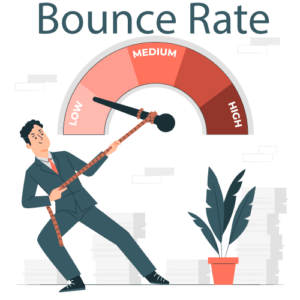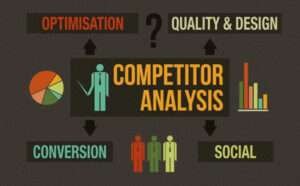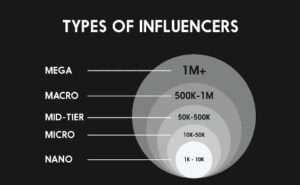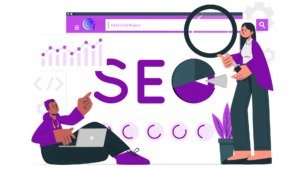
Understanding Meta Tags and Their Influence on SEO and User Experience
Meta tags are snippets of text that provide information about a web page’s content. They are included in the HTML code of a web page and are not visible to users when they view the page. Instead, meta tags are read by search engines and web browsers to understand and display information about the page. Although meta tags themselves do not directly influence a page’s ranking in search engine results, they play a crucial role in various aspects of SEO (Search Engine Optimization) and user experience.
This comprehensive overview will delve into the different types of meta tags, their functions, and their impact on SEO and user experience.
Types of Meta Tags
Title Tag
- Description: The title tag is one of the most important meta tags and defines the title of a web page. It appears in the browser tab and is used by search engines as the main title of the page in search results.
- Impact on SEO: Title tags are crucial for SEO because they give search engines an understanding of the page’s content. A well-crafted title tag can improve a page’s ranking by incorporating relevant keywords. Additionally, a compelling title tag can increase click-through rates (CTR) from search results.
- Best Practices: Keep title tags between 50-60 characters to ensure they are not cut off in search results. Include primary keywords, make it descriptive, and ensure it aligns with the page’s content.
Meta Description Tag
- Description: The meta description tag provides a brief summary of a web page’s content. It is often displayed under the title tag in search engine results.
- Impact on SEO: While meta descriptions are not a direct ranking factor for search engines, they play a significant role in influencing CTR. A well-written meta description can entice users to click on the link, which can indirectly affect rankings by improving user engagement.
- Best Practices: Aim for 150-160 characters to ensure the description is fully visible in search results. Include relevant keywords, make it engaging, and ensure it accurately reflects the content of the page.
Meta Robots Tag
- Description: The meta robots tag provides instructions to search engine crawlers about how to index and follow the content on a page.
- Impact on SEO: This tag can be used to control the indexing of a page and the following of links on the page. For example,
noindexprevents a page from being indexed, whilenofollowprevents search engines from following the links on the page. - Best Practices: Use this tag judiciously to manage how search engines interact with your content. For example, use
noindexfor duplicate or low-value pages, andnofollowfor pages with outbound links that you don’t want to pass authority.
Meta Keywords Tag
- Description: The meta keywords tag was historically used to specify keywords relevant to a web page. However, it is now largely obsolete.
- Impact on SEO: Major search engines like Google no longer use the meta keywords tag for ranking purposes due to misuse and keyword stuffing. Its influence on SEO is minimal to non-existent.
- Best Practices: While it’s not harmful to include a meta keywords tag, it is generally considered unnecessary. Focus on other on-page SEO factors instead.
Meta Charset Tag
- Description: The meta charset tag defines the character encoding used on a web page. It helps ensure that the page is displayed correctly in different browsers.
- Impact on SEO: Proper character encoding is crucial for user experience and accessibility. While it doesn’t directly impact SEO, it affects how content is rendered and indexed.
- Best Practices: Use the UTF-8 character encoding, which supports a wide range of characters and is compatible with most languages.
Meta Viewport Tag
- Description: The meta viewport tag controls how a web page is displayed on mobile devices by setting the viewport width and scale.
- Impact on SEO: With the rise of mobile-first indexing, the viewport tag is important for ensuring that mobile users have a positive experience. Search engines like Google prioritize mobile-friendly pages, so this tag indirectly affects SEO.
- Best Practices: Use
width=device-width, initial-scale=1to ensure your site is responsive and adapts to different screen sizes.
Influence on SEO
Meta tags influence SEO in several ways, though not all tags have a direct impact on rankings. Here’s how different meta tags contribute to SEO:
Title Tags
- Importance: Title tags are crucial for both SEO and user experience. They help search engines understand the content of the page and play a significant role in determining search rankings.
- Optimization: Incorporate primary keywords and ensure that the title is compelling and relevant to the page content. This can help improve rankings and attract clicks from search results.
Meta Descriptions
- Importance: While not a ranking factor, meta descriptions can impact CTR, which indirectly affects SEO. A higher CTR can signal to search engines that your page is relevant and engaging, potentially improving its rankings.
- Optimization: Write clear, concise, and persuasive descriptions that include keywords and provide a compelling reason for users to click on your link.
Meta Robots Tags
- Importance: These tags help manage how search engines interact with your content. Proper use of meta robots tags can prevent indexing of duplicate or low-value content, which can improve overall site quality and rankings.
- Optimization: Use
noindexandnofollowtags strategically to control the visibility of specific pages and links.
Meta Keywords Tags
- Importance: This tag has minimal impact on modern SEO practices. Search engines have moved away from using meta keywords due to past misuse.
- Optimization: Focus on creating high-quality content and optimizing other relevant meta tags instead of investing time in meta keywords.
Meta Charset Tags
- Importance: Ensuring proper character encoding is essential for rendering content correctly. This tag doesn’t directly impact SEO but affects user experience and accessibility.
- Optimization: Use UTF-8 encoding to support a broad range of characters and ensure compatibility across different browsers and devices.
Meta Viewport Tags
- Importance: This tag is essential for mobile-friendly design and user experience. Since search engines prioritize mobile-friendly sites, the meta viewport tag indirectly influences SEO.
- Optimization: Implement responsive design principles and use the viewport tag to ensure your site adapts to various screen sizes.
Influence on User Experience
Meta tags also play a significant role in shaping user experience:
Title Tags
- Impact: The title tag is often the first impression users get of a web page in search results. A clear, descriptive title can attract users and set accurate expectations about the content.
- Best Practices: Craft titles that are both informative and appealing to encourage clicks and improve user satisfaction.
Meta Descriptions
- Impact: Meta descriptions provide a brief summary of the page’s content and help users decide whether to click on a search result. An engaging and relevant description can enhance user experience by delivering concise information about the page’s value.
- Best Practices: Write descriptions that align with user intent and offer a compelling reason to visit the page. Avoid clickbait and ensure accuracy.
Meta Robots Tags
- Impact: By controlling which pages are indexed and followed, meta robots tags can improve the relevance and quality of the search results users encounter. This helps ensure that users find valuable content rather than duplicate or irrelevant pages.
- Best Practices: Use
noindexto exclude pages that don’t add value andnofollowto manage link equity.
Meta Charset Tags
- Impact: Proper character encoding ensures that text is displayed correctly, avoiding issues with special characters and languages. This contributes to a better user experience by preventing display errors.
- Best Practices: Always use UTF-8 encoding to support a wide range of characters and ensure proper rendering.
Meta Viewport Tags
- Impact: The viewport tag ensures that a web page is responsive and displays correctly on mobile devices. A well-configured viewport tag contributes to a seamless mobile experience, which is crucial for user satisfaction.
- Best Practices: Implement responsive design principles and use the viewport tag to adapt your site to various screen sizes.
Conclusion
Meta tags are an integral part of web page optimization, influencing both SEO and user experience. While not all meta tags have a direct impact on search rankings, they play crucial roles in providing information to search engines and enhancing user interaction with web pages.
Title tags and meta descriptions are particularly influential in SEO, affecting how search engines understand page content and how users perceive and interact with search results. Meta robots tags help manage indexing and crawling, contributing to a more organized and relevant search experience. While meta keywords tags have lost their significance, other meta tags, such as charset and viewport, play essential roles in ensuring content is displayed correctly and is accessible across devices.
By understanding and optimizing meta tags, webmasters and SEO professionals can enhance both the visibility and usability of their web pages, ultimately leading to better search rankings and improved user engagement.

















































